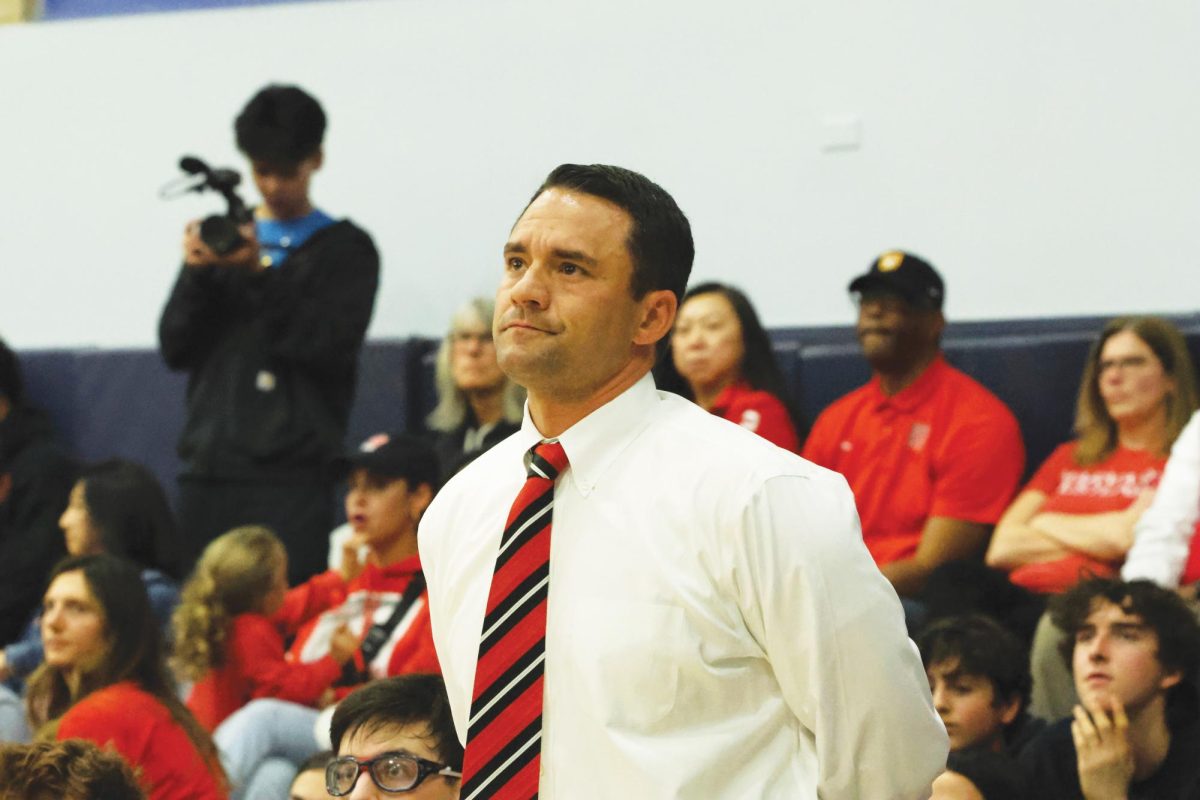By David Alpert
The lack of quality gigs at which the group could perform frustrated Jay Dockendorf â07 during his first two years with the Jazz Explorers. Under the leadership of now-retired jazz teacher Jerry Margolis, the group mostly played at small parent and private parties. Most gigs were coordinated by Margolis or Explorersâ parents. These gigs didnât require an intense level of focus, Dockendorf said. They were casual, and the group often went in without rehearsing.Â
However, this year, pianist Dockendorf, chosen to be the leader of the group by Margolis based on his audition last spring, finally got to shape the Explorers and their activities.
âMy goal all along was to take the group to another level and make a name for ourselves outside of Harvard-Westlake,â Dockendorf said.
Dockendorf teams up with Ian Sprague â08, Ian Stanton â08, Kurt Kanazawa â07, Leland Farmer â07 and Lucas Berman â07 every Friday to form the schoolâs six-piece pre-eminent jazz band, under the leadership of first-year jazz teacher Shawn Costantino.
Costantino has chosen to emphasize the full 17-piece jazz band during in-school jazz class periods most days. This has pushed the Explorers to practice after school on Fridays so that Costantino can get an opportunity to work with them.
Costantino understands that practicing on Fridays can get a little old for boisterous teenagers, but it is the only time that the entire group can get together.   Â
The new tone for the group was set before school even started, when the Explorers played their first gig at the Jazz Bakery in Culver City, a big gig the likes of which had not been seen under Margolis.Â
Coupled with the increased commitment, the after school practices caused unrest in the group.
Amid a general lack of cohesion and lack of a real system in place, the group had internal discussions about what the group was and what they wanted to be. They talked about what each member planned on getting from the group.Â
Dockendorf saw that the group had come âto a point where we had to decide whether we wanted to continue on the path we were going and lose members, or make changes.â
The group was able to work all the issues out, and now the group is all on the same page.Â
âWe had a lot of unfocused outside school rehearsals,â Dockendorf said. âWe agreed to work harder to maximize the in-school time we had, while not encroaching on anyone elseâs private life.â
The increased commitment has affected each Explorer differently. Stanton cannot recall any scheduling conflicts. âYou have to be dedicated. You have to be willing to go overtime.â
Berman, on the other hand, hasnât found the scheduling to be too convenient. He finds it helpful that attending the gigs is optional, but still generally feels an obligation to perform. Because the students are in charge of booking gigs, a lot of the group make-up depends on whoâs in it. Berman considers the groupâs increased activity to be a direct result of the way he structured practices. He advises future Explorers and other jazz performers considering joining the Explorers to know what theyâre signing up for.
Dockendorf, who plans on studying jazz in college and possibly playing semi-professionally, has of course had no problems with the commitment level. He considers the Explorers to be his absolute main priority at school.
âI try to be cognizant of all schedules and try not to book a gig where not everyone can make it,â Costantino said. âSometimes I take the high road and force them to play even though it doesnât fit in with their schedules.â
In the future through the audition process, he plans to make it clear that those who donât want to be involved outside of school need not apply for the Explorers. Â
At Costantinoâs count, the band was only scheduled for three scholastic concerts this year. This left him coping with the differences between his own high school experience, where he played three times monthly, and his Harvard-Westlake experience, where it was possible that the group might only perform thrice during the year.Â
âIf we only rehearse and never perform, we arenât playing a jazz band,â Costantino said. âWeâre playing pretend jazz.â





































